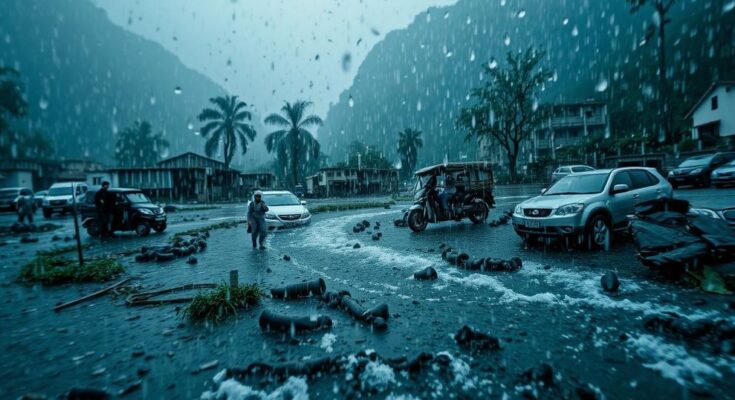A recent study by World Weather Attribution confirms that climate change intensified the recent floods in Nepal by approximately 10%, leading to over 240 fatalities and significant damage. The analysis highlights the urgent need for Nepal to manage urban development in vulnerable areas and improve flood preparedness to protect lives in the future.
Recent floods in Nepal that resulted in the deaths of over 240 people were exacerbated by human-induced climate change, according to a rapid analysis conducted by scientists from World Weather Attribution (WWA). The study indicated that rainfall during the extreme weather event was approximately 10 percent more intense due to climate change effects. The devastating floods occurred after three days of heavy rainfall beginning on September 26, breaking records across central and eastern Nepal, with some areas recording over 320 mm of rain on September 28. The aftermath saw significant fatalities, widespread destruction, and damage estimated in billions of rupees, particularly affecting the Kathmandu valley. Eyewitness accounts noted that such flooding events had not occurred previously in the region.
The article discusses a recent analysis conducted by a team of scientists regarding the severe flooding in Nepal, which has been linked to human-induced climate change. The analysis highlights the need for proactive measures to prevent future floods, particularly in urban areas close to rivers that are vulnerable to flooding. The collaboration involves international researchers and underscores the growing concern of climate change impacting extreme weather events globally.
The findings stress the importance of limiting development in flood-prone areas to mitigate the risks during future floods. Furthermore, the results reveal significant implications for climate resilience in Asia, emphasizing that climate change is an immediate and pressing threat rather than a distant concern. The urgency to transition to renewable energy sources becomes more critical in light of these findings, as ongoing fossil fuel reliance continues to fuel climate-related disasters.
Original Source: www.theweek.in




